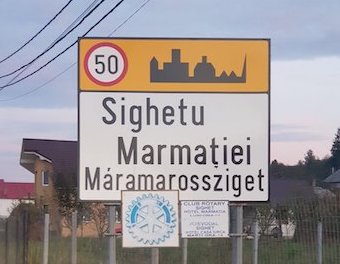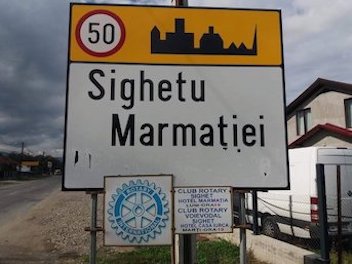Unknown vandals have removed the Hungarian inscription from the freshly erected bilingual town signs in Máramarossziget/Sighetu Marmației. The bilingual town signs survived only two days: The local authority installed the six signs on Tuesday, and by Thursday morning the signs had the Hungarian-language inscriptions completely scraped off.
Speaking with Krónika, István Béres, the RMDSZ’s local president, said that he will report the matter to the police. Considering that Hungarians account for 10% of the city’s population, placing the Hungarian-language sign was a much-needed step, as the law allows local authorities to decide whether they will honor minorities by providing, for example, bilingual town signs. According to Béres, the mayor’s office decided to erect six bilingual signs, which materialized on October 8, but two days later the self-adhesive letters of the Hungarian inscription had disappeared from all of them.


Unfortunately, this isn’t the first case of intolerance of Hungarian inscriptions on town signs. As we previously reported, such acts of vandalism happen too often. We reported the black-spray-painted Nagyvárad inscription on that city’s exit sign, but that was just a follow-up from an earlier act of vandalism targeting the same signs mid-December of last year. The same month, similar actions targeted town signs in Kisszentlőrinc/Lăureni in Maros/Mureș County, and earlier in 2018 unknown suspects vandalized the town entry sign in Sepsiszentgyörgy/Sfântu Gheorghe (Kovászna/Covasna County) and Palotailva/Lunca Bradulul (Maros/Mureș County). The list goes on as we go back further in time.
The 2001 local administration law makes it mandatory for the names of settlements to also be displayed in the minority’s language if their numbers exceed 20%, but it does not prohibit municipalities to do so even if the percentage is lower. Trilingual (Romanian-Hungarian-German) signs are already present in Brassó/Brașov, Kolozsvár/Cluj, Nagybánya/Baia Mare, Nagyszeben/Sibiu, Segesvár/Sighișoara, Temesvár/Timișoara, and Zilah/Zalău.